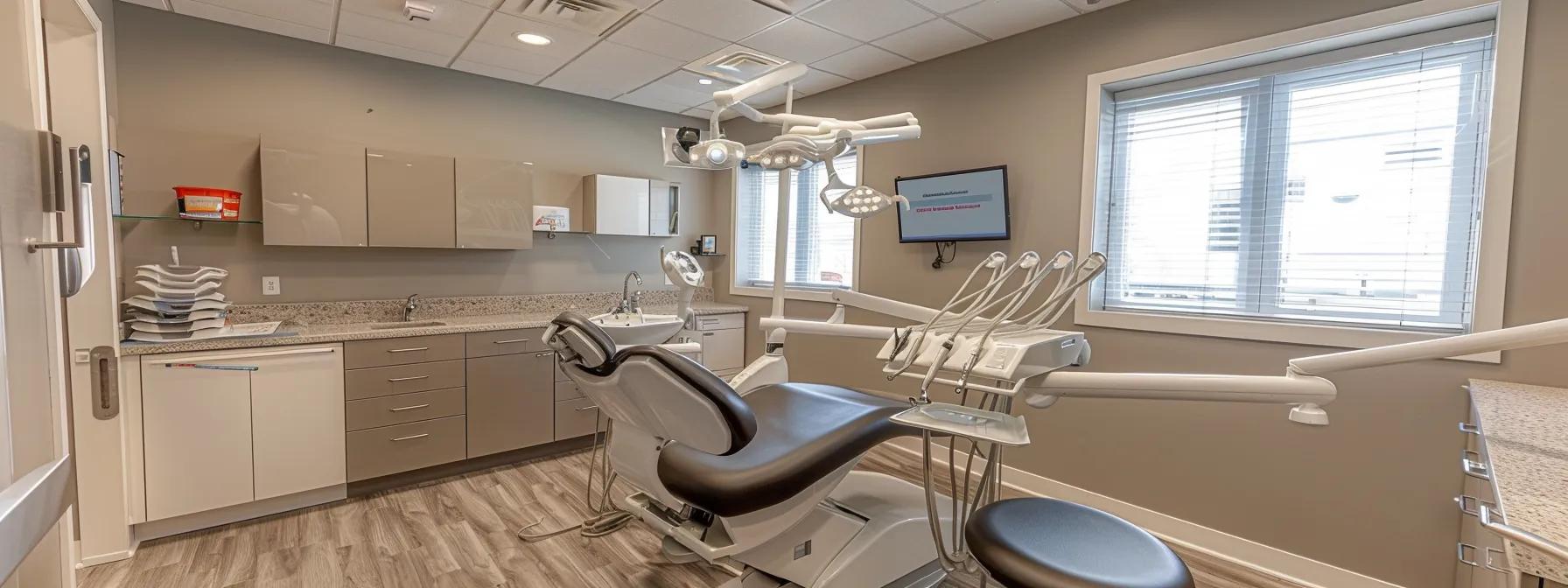Dental Implants as a Long-Term Investment
Dental implants represent more than just a cosmetic upgrade—they are a long-term investment in oral health, quality of life, and overall well-being. For individuals dealing with tooth loss, implants provide a permanent, natural-looking solution that can restore full function and self-confidence. But for many patients, the first question is financial: “How much do dental implants cost?” The answer isn’t simple, because the price can vary depending on several factors including materials, procedures, and geography.
What patients need to know is that the value of dental implants extends far beyond the initial cost. Unlike dentures or bridges that often require replacement or repair, implants are designed to last for decades with proper care. Their ability to preserve bone, maintain facial structure, and restore full chewing capacity gives them a major advantage over other options. The upfront investment may be significant, but it prevents years of future complications and recurring expenses.
When considering dental implants, it’s important to approach the cost with a balanced perspective. While they do require a greater financial commitment than other restorations, they also deliver unmatched durability, function, and aesthetic results. For those who want a lifelong solution that mimics the look and feel of natural teeth, implants often prove to be the most economical and rewarding choice in the long run.
What Makes Up the Cost of Dental Implants
The total cost of a dental implant procedure is made up of several components, each of which plays a critical role in the success of the treatment. The implant itself consists of three main parts: the titanium post that is surgically placed into the jawbone, the abutment which connects the post to the crown, and the crown that acts as the visible, functional tooth. Each component comes with its own price tag, influenced by material quality, customization, and the expertise required for placement.
Beyond the implant hardware, there are service-based costs to consider. These include the surgical fee for placing the implant, pre-operative diagnostics like X-rays or 3D scans, and follow-up visits for monitoring healing. The experience of the dental team, including whether you’re seeing a general dentist or a specialist such as a periodontist or oral surgeon, also affects the overall cost. More experienced practitioners may charge more, but their precision can reduce the risk of complications and increase the lifespan of your implant.
Location can play a major role in pricing as well. A dental implant procedure in a major city may cost significantly more than in a small town due to higher overhead and demand. Patients in areas like Clifton, TX may find more affordable yet equally professional care. Comparing costs between regions and practices is a good idea, but patients should always consider the quality of care, materials, and customization—not just the final number on a price tag.
Additional Costs for Preparatory Procedures
Not all patients are ready for immediate implant placement. Some may require preparatory procedures that ensure the mouth is in optimal condition before the implant is placed. One of the most common is bone grafting, which is necessary when a patient’s jawbone isn’t dense or strong enough to support an implant. This procedure adds to the total cost but is critical for the long-term success of the implant.
Another common pre-implant procedure is a sinus lift, especially for upper molar implants where there’s not enough bone height. This involves raising the sinus membrane and adding bone material to create sufficient space and stability for the implant. While this adds time and expense to the treatment plan, skipping it can lead to implant failure, which is far more costly in the long run.
Tooth extractions can also contribute to the overall price. If a damaged or decayed tooth must be removed before implant placement, this additional step requires surgical care and healing time. Patients should speak with their dentist about the necessity of these procedures and how they fit into the overall timeline and cost structure. Each case is unique, so it’s important to get a full treatment plan and quote that includes these potential costs.
Factors That Influence Implant Pricing
One of the biggest variables in dental implant pricing is the quality of the materials used. Standard-grade titanium is commonly used for the implant post, but some providers may offer premium materials like zirconia or advanced coatings that speed up healing. Similarly, the crown may be made from porcelain, ceramic, or a high-end zirconia that offers better aesthetics and durability. These choices impact cost but also affect the look, feel, and longevity of your implant.
Another key factor is anatomical complexity. Some patients may have narrow ridges, irregular bone patterns, or nerve proximity issues that require specialized imaging, custom implant components, or more complex surgical approaches. These individualized considerations can drive up the price but also ensure a more predictable and successful outcome. For this reason, a thorough diagnostic assessment before treatment begins is essential.
Lastly, regional and practice-level pricing variations must be considered. Practices in high-cost-of-living areas or with elite reputations may charge more for the same procedure. That’s why it’s important to evaluate the value you’re receiving—not just the price. A higher fee might include better post-op care, superior materials, or a faster healing process, which can be worth the investment over time.

Financial Planning and Insurance Considerations
Understanding how to manage the cost of dental implants can make the process feel less overwhelming. Start by reviewing your dental insurance coverage. Some plans cover parts of the procedure, such as the crown or extraction, while others may cover the implant if it’s deemed medically necessary. It’s worth asking your provider for a detailed breakdown and checking with your dental office about what’s billable under your specific policy.
If insurance doesn’t cover the entire procedure—or if you’re uninsured—financing is often the best path forward. Many dental practices offer payment plans or work with third-party lenders like CareCredit or LendingClub. These services allow patients to split the cost into manageable monthly payments, often with little or no interest. This spreads the expense out over time and helps make implants more financially accessible.
It’s also important to view dental implants as a long-term investment. While other solutions like bridges or dentures may cost less upfront, they often need to be replaced or adjusted. Implants, on the other hand, can last 20 years or more with proper care. When compared to the recurring expenses of less permanent options, the one-time investment in implants often proves to be more economical and sustainable over time.
Choosing the Right Provider: Why It Matters
The provider you choose for dental implant treatment plays a critical role in your experience and outcome. At a reputable office like Dynamic Family Dentistry in Clifton, TX, patients benefit from a transparent, educational, and customized process. From the very first consultation, you’ll receive clear information about your diagnosis, treatment options, and financial responsibility—no surprises or hidden fees.
Dynamic Family Dentistry also emphasizes personalized care. Each treatment plan is tailored to your health history, bone structure, cosmetic preferences, and long-term oral health goals. You’re never just another patient—you’re a partner in the decision-making process. This level of customization ensures that both the functional and aesthetic outcomes meet your expectations.
Beyond expertise, accessibility matters too. Being able to schedule follow-up visits, get quick answers to questions, and trust your provider to guide you through every phase of the process creates peace of mind. That’s why a local, community-based practice like Dynamic Family Dentistry can offer a distinct advantage over larger chains or out-of-town providers. Personalized care and consistent communication make all the difference.
Conclusion: Making a Confident Investment
The cost of dental implants can be a barrier for some patients—but it shouldn’t be a dealbreaker. When broken down into its components and evaluated over the long term, the value of implants becomes clear. You’re not just paying for a tooth replacement; you’re investing in your confidence, your health, and your quality of life.
Understanding what contributes to the cost—from materials and expertise to preparatory procedures and post-op care—helps patients make informed decisions. Financing options and insurance coverage can further ease the burden, allowing more people to access this transformative treatment.
Whether you’re considering implants for one missing tooth or a full arch, the decision starts with choosing the right provider. With professional guidance, realistic budgeting, and a long-term mindset, dental implants can be one of the wisest—and most rewarding—investments you make in yourself.
Dr. Scott Kennedy and the team at Dynamic Family Dentistry are here to help you achieve the bright, confident smile you’ve always wanted. Book a consultation today to learn more about dental emergencies in Clifton, TX, and take the first step toward a radiant smile!
Dynamic Family Dentistry
302 S. Avenue Q, Clifton, Texas Phone: (254) 675-3518
Related Articles
Dental Emergency, Understanding Emergency Root Canals, Emergency Extractions, Protection During Dental Emergencies, Lost a Filling or Crown Tips, What’s an Emergency Dentist
FAQs
How much do dental implants usually cost?
Dental implant prices typically range from $3,000 to $5,000 per tooth, depending on the materials used and whether additional procedures like bone grafts are needed.
Are implants covered by dental insurance?
Some insurance plans offer partial coverage, especially for crowns or medically necessary extractions. Always check with your provider and ask your dental office to submit a pre-authorization.
What financing options are available?
Many dental offices offer monthly payment plans or work with financing partners like CareCredit. This helps make implants more affordable without sacrificing quality or results.


